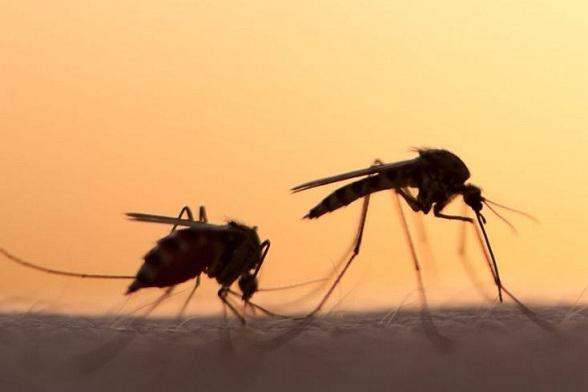In Namibia’s spoken word scene, Franklin Shitaleni stands out not just for his longevity and drive, but for the deep philosophy that guides his every verse. He’s a poet with a purpose and more than 12 years experience, whose journey has been focused on cultivating art, shaping lives and spreading the gospel.
In an interview with us, he talks about his work, his mission and his hopes for the future.
The poet’s love of words and literature began in his youth. What started as a personal practice of daily journaling and library visits, soon became a powerful form of self-expression and an instrument for connecting with others.
By his early 20s, Shitaleni’s performances had developed into a community fixture, taking him to various stages, including as part of the musical duo Franklin and Dee’A.
Now he’s a full-time radio presenter at the Namibian Broadcasting Corporation, a television host, a Christian hip-hop artist, a radio production lecturer, an arts facilitator and the creator of various platforms for orators. He balances these many interests naturally, thanks to his love of scheduling and planning.

For him, poetry is an extension of the self and the most diverse form of storytelling. He says he’s inspired by anything he considers real and genuine, and considers it a privilege to be on earth. And in terms of poetry, he’s banking on the success of Namibian orators.
“We we are at a position where we can become the poetry home of choice in Africa,” he posits.
This strong belief is clear when you pay attention to how often he is associated with spoken word and poetry spaces.
Shitaleni also tours schools and correctional facilities with his Frankly Speaking organisation, sharing the power of self-expression. Through his radio show, Namibian inmates share their personal stories, insights into their experiences, the circumstances of their incarceration and the challenges they face.
He says there is great power in valuing human lives of all kinds and offering them a safe space for poetic expression.
“The most valuable thing on earth is human life, regardless of circumstance and status. There’s no greater investment than human life, so the incarcerated are just people that might have made a mistake that I myself have the capacity to do as well. And so it matters to me, because I am called for people and to people and [called] to genuinely love people outside of myself, and not love them by virtue of preference,” he says of his initiative. School children also make their submissions.
Supporting emerging voices in Namibia’s creative scene is clearly his mission.
“True meaning and growth are found in the adoption of responsibility bigger than yourself,” he says, emphasising his drive to nurture the next generation of artists through mentorships and workshops.
As he talks, Shitaleni’s philosophy becomes clear: he wants to leave a legacy that isn’t bound by his own name or image.

“Popularity is a horrible concept, but man, I just want to make God’s purpose over your life popular … they should write on my tomb: ‘Here lies a man empty of all that God has given to him’. […] That’s the only legacy I want to leave – that people can understand that you could really follow your God-given purpose and destiny and carry it out effectively.”
It’s a striking departure from the typical modern artist’s ambitions of fame and fortune, but he says he’s on a mission to preserve Namibian culture and stories.
His advice to artists is to understand the major responsibility they have to share intentional, factual and thought-through content. Some greats he heralds as pioneers of the field include Ashwyn Mberi, Patrick Sam, Lad Black, MC Harry, Mark Mushiva and Julio.
He is also heavily invested in the hip-hop scene. He says the tides are changing, and he is seeing a return to more authentic creation.
“Namibian hip-hop went from a place where people were renting out cars to flex in videos, to just shooting in the ghetto because that’s really where you’re from. The world buys a much more genuine story when it is not faked,” he says.
He believes remaining true to one’s self will always lead to the creation of timeless work, and as a rapper himself, he praises the incorporation of local vernacular in the songs trending today.
His philosophy has inspired a growing following of young poets and thinkers in Namibia, and his shows are often the only platforms available for budding wordsmiths. But for him, it isn’t just about poetic technique; it’s also about encouraging creatives to align their lives with their values.
“We are adventurous creatures, and true meaning and growth are found in the adoption of responsibility bigger than yourself,” he says.
For him, the journey of life is a series of challenges that test one’s character, and he believes art should reflect this journey in all its complexity.
In terms of the future of his field, he hopes writers are supported and nurtured on a wide scale. This is something he holds near to his heart, as one of the few outlets truly left having necessary conversations.
“I believe in sustainable art that I, the proponent of the idea, might not necessarily benefit from. I believe in creating structures that replenish themselves. For Namibian poetry in the next five years, there should be an existing hierarchy and structures and from that, this art form will be sustainable for the next 100 000 years,” he says.
On what’s in store in his own life, Shitaleni hopes to grow his brand as a major home of music and poetry. By fostering inclusive spaces, he hopes to continue preserving and celebrating Namibian voices and stories.
“Whatever it is, I want it to keep me close to people, to stories, to something that challenges me to be better,” he says.
– Anne Hambuda is a writer, social commentator and poet. Follow her online or email her at an nehambuda@gmail.com for more.
Stay informed with The Namibian – your source for credible journalism. Get in-depth reporting and opinions for
only N$85 a month. Invest in journalism, invest in democracy –
Subscribe Now!







